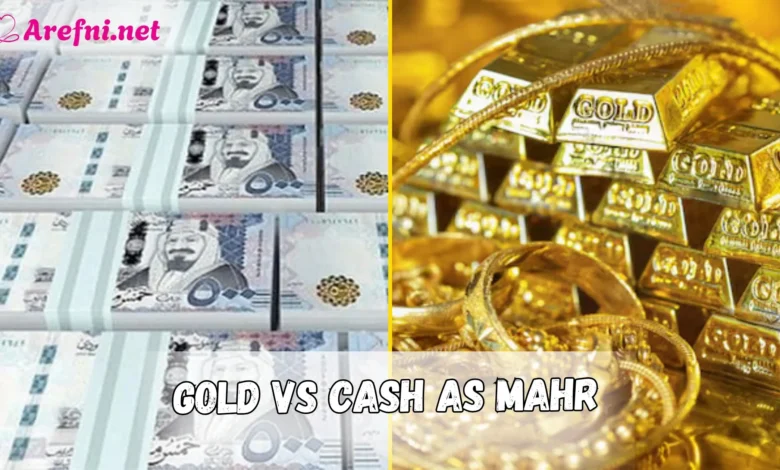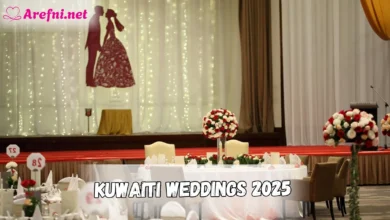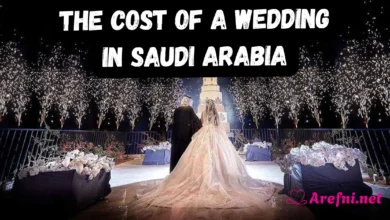Gold vs Cash as Mahr 2025
What Do Brides in the Gulf Prefer as Mahr?

In the Gulf region, marriage is more than a union between two individuals it’s a symbol of family honor, social status, and financial security. One of the central components of a marriage contract in Islamic cultures is the mahr, a mandatory gift from the groom to the bride. Traditionally, this gift can take various forms: gold, cash, property, or even symbolic gestures. However, in today’s Gulf societies especially in countries like Saudi Arabia, the UAE, Qatar, Bahrain, and Kuwait the question arises: do brides prefer gold or cash as mahr?
This article explores the cultural, economic, and social influences that shape this decision and reveals current trends among modern Gulf brides.
Understanding the Concept of Mahr
Mahr is an essential part of the Islamic marriage contract, stipulated by Sharia law. It represents the groom’s commitment and financial responsibility and must be agreed upon before the marriage ceremony. The amount and form of mahr vary widely across cultures and income levels, but it always belongs solely to the bride.
In the Gulf, where wealth and tradition intersect, the mahr takes on additional significance. It is not just a religious obligation but also a display of generosity, social standing, and often luxury.
Historical Preference: Gold as Mahr
Gold has long been considered the traditional form of mahr in the Gulf. It holds cultural, emotional, and financial value. Families across generations have passed down gold jewelry, and gold is seen as both an adornment and an investment.
Why Gold Was Favored:
- Cultural Symbolism: Gold jewelry plays a central role in weddings. Necklaces, bangles, earrings, and rings are often worn by brides during their big day.
- Tangible Asset: Gold retains intrinsic value and can be passed down through generations.
- Inflation Hedge: In times of economic uncertainty, gold acts as a safe-haven asset.
- Social Display: Gifting substantial gold showcases the groom’s wealth and family status.
The Shift Toward Cash: A Modern Trend
As economies and social norms evolve, more brides and their families in the Gulf are opting for cash mahr instead of gold.
Reasons Behind the Shift:
- Financial Flexibility: Cash allows brides to invest in education, real estate, or businesses.
- Practical Needs: Young couples often prefer money to furnish their homes or plan luxury honeymoons.
- Avoiding Fluctuation: While gold prices fluctuate, cash provides stable, immediate value.
- Digital Payments: With the rise of fintech and digital wallets in the UAE, Saudi Arabia, and Qatar, cash payments are easier and more traceable.
Case Study: Saudi Arabia
In Riyadh and Jeddah, many families now negotiate cash mahr of around SAR 50,000–100,000. Gold is often still given but considered supplementary rather than primary.
What Do Brides Really Want?
Interviews and surveys conducted by wedding planners and matchmaking agencies in the Gulf reveal diverse opinions.
Bride Perspectives:
- Fatima, 27, Dubai: “Gold is beautiful, but I asked for cash so I could invest in my skincare brand. It felt empowering.”
- Layla, 30, Kuwait City: “Gold has sentimental value, and I love jewelry. My husband gave me both gold and cash it felt perfect.”
- Hessa, 25, Doha: “My parents preferred gold, but I chose a mix of gold and cash. It’s important to honor tradition but also think practically.”
Wedding Planners’ Insights:
Professionals across Dubai, Doha, and Manama report a 60-40 split in favor of cash among upper-middle-class and affluent brides. However, in more traditional families or among older generations, gold still reigns supreme.
Cultural Nuances by Country
UAE:
- Urban Emirati brides prefer luxury brands and often use cash mahr for shopping or investment.
- Gold is still given as a wedding gift, but often in symbolic amounts.
Saudi Arabia:
- The amount of mahr varies by region. While urban centers lean toward cash, rural areas still favor gold.
- Government initiatives encourage reasonable mahr amounts to reduce wedding costs.
Qatar:
- Families prefer to give gold for its cultural importance, but brides increasingly ask for cash for its utility.
- High-income families often offer both.
Bahrain:
- Brides enjoy the social prestige of wearing gold at weddings but favor cash for long-term planning.
Kuwait:
- A strong market for luxury goods and investment among women makes cash attractive.
- Gold is often customized by high-end jewelers as a complementary gift.
Financial Implications for Grooms
The debate between cash and gold also affects the groom’s planning.
Gold:
- Price per gram fluctuates, which can affect total cost.
- Purchasing gold requires dealing with certified jewelers and often comes with premium design charges.
Cash:
- Straightforward, fast, and easier to budget.
- Can be invested by the bride, helping her secure financial independence.
Some grooms now opt for hybrid solutions, offering part of the mahr in cash and the rest in gold, along with real estate or luxury watches.
The Influence of Luxury and Branding
Luxury branding heavily influences bridal preferences in the Gulf. The rise of designer jewelry, luxury watches, and investment-grade gold bars has added new dimensions to the concept of mahr.
Luxury Gift Options:
- Cartier, Van Cleef & Arpels, and Bvlgari sets as mahr gifts
- Gold coins and bullion from certified banks
- Luxury handbags and watches as part of the mahr package
These items combine both status and utility, aligning with the taste of affluent brides in Dubai, Doha, and Riyadh.
Social Media’s Role in Shaping Expectations
Instagram, TikTok, and YouTube have reshaped how Gulf brides view mahr. Influencers and bridal bloggers frequently post their mahr gifts, wedding setups, and lifestyle upgrades.
Popular hashtags include:
#GulfWeddings
#DubaiBrides
#SaudiLuxury
#QatarGold
#KuwaitWeddings
The rise of these trends is pushing grooms to think creatively and luxuriously when planning the mahr.
Religious and Ethical Considerations
Islam encourages moderation in mahr to ensure that marriage remains accessible and not a financial burden.
Scholars’ Views:
- Excessive demands, whether in gold or cash, can be discouraged.
- The mahr should be agreed upon with mutual understanding, sincerity, and consent.
- Intent matters more than the material what’s important is honoring the spirit of the gift.
A Personalized Decision
So, what do Gulf brides prefer gold or cash? The answer is deeply personal and varies based on background, financial goals, and family expectations.
In the evolving landscape of Gulf marriages, the choice of mahr is no longer a simple question of tradition. It reflects a blend of heritage, economic awareness, lifestyle preferences, and modern empowerment. Some brides embrace gold for its elegance and emotional resonance, while others prioritize cash for the freedom it provides.
Ultimately, the ideal mahr is one that respects tradition, fulfills Islamic values, and meets the practical needs of the couple. Whether it shines in 24K gold or stacks neatly in AED or SAR, what matters most is that it represents love, respect, and commitment.
As Gulf societies continue to grow more sophisticated and globally connected, so too will the ways in which love and tradition are expressed and the mahr will remain a treasured symbol at the heart of it all.




